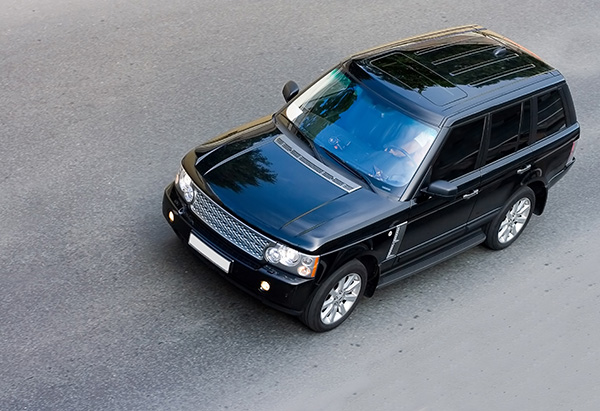
Owning an SUV comes with a unique set of responsibilities, particularly when it comes to keeping it in top condition. Given their larger size and versatility, SUVs are designed for everything from daily commuting to off-road adventures, but they need proper care to stay in peak shape. Whether you rely on your SUV for long road trips, hauling cargo, or navigating rough terrain, regular maintenance ensures its performance stays reliable, and it helps you avoid unexpected repairs. So, what should every SUV owner know about taking care of their vehicle?
Regular Oil Changes
One of the most critical aspects of SUV maintenance is ensuring regular oil changes. Your SUV’s engine needs clean oil to keep it running. Over time, oil becomes contaminated with dirt and debris, causing it to lose its effectiveness in lubricating engine components. This can lead to increased friction, overheating, and, ultimately, engine damage.
Make it a habit to check your oil level regularly, especially if you do a lot of towing or off-roading, as these activities can cause the engine to work harder. Most SUVs will need an oil change every 3,000 to 5,000 miles, but always refer to your owner’s manual for specific guidelines. Remember, fresh oil improves performance, reduces engine wear, and helps you save on fuel by improving efficiency.
The Foundation of Safety and Performance
Your tires are the only part of your SUV that makes contact with the road, so their condition is critical to both safety and performance. Keeping an eye on tire pressure, tread depth, and alignment can save you from potential blowouts and ensure a smooth ride.
Tire pressure naturally fluctuates with changes in temperature, so be sure to check it monthly, as well as before long trips or heavy loads. Under-inflated tires can decrease fuel efficiency and lead to uneven tread wear, while over-inflated tires reduce grip and handling. Most SUVs have recommended tire pressures listed in the owner’s manual or on a sticker inside the driver’s side door.
Also, tire rotations should be made every 6,000 to 8,000 miles. This helps to even out wear and extend the lifespan of your tires. Checking the tread depth regularly can alert you to signs that you need new tires before they become a safety hazard. A simple way to check is by using the penny test: if Lincoln’s head is fully visible when inserted into the tread, it’s time for new tires.
Ensuring Optimal Stopping Power
Brakes are one of the most vital safety features in any vehicle, and SUVs, given their size and weight, place even more stress on the braking system. Whether you’re towing heavy loads or navigating steep inclines, maintaining your brakes should be a top priority.
Pay attention to signs of brake wear, such as squealing, grinding, or a spongy feel in the brake pedal. These are indications that your brake pads may be worn down and need replacement. Neglecting brake maintenance can lead to expensive rotor or caliper damage. It’s also a good idea to have your brake fluid checked periodically, as low or contaminated fluid can affect braking performance.
Regular brake inspections—about once every 10,000 miles—can help you catch issues early and ensure your SUV’s braking system is always functioning at its best.
Transmission Care
For SUVs, particularly those used for towing or off-road driving, the transmission undergoes considerable strain. Whether your SUV has an automatic or manual transmission, regular maintenance is key to prolonging its life and preventing expensive repairs.
Transmission fluid plays a crucial role in lubricating the moving parts of your transmission. Over time, the fluid can become dirty or depleted, leading to poor performance and, in severe cases, transmission failure. Checking the fluid levels regularly and having it replaced according to the manufacturer’s recommendations will keep your transmission shifting gears effortlessly.
Signs of transmission trouble include slipping gears, delayed shifts, or strange noises when accelerating. If you notice any of these symptoms, it’s a good idea to get your SUV checked out by a professional to avoid further damage.
Keeping the Ride Comfortable
An SUV’s suspension system is designed to provide a comfortable ride and absorb the shocks from uneven terrain. However, potholes, bumps, and rough roads can take a toll on the suspension over time. Maintaining your SUV’s suspension not only ensures a smoother ride but also helps to protect other components like tires and brakes.
If you notice your SUV pulling to one side, excessive bouncing, or unusual vibrations, it might be time to inspect your suspension. Regular alignment checks will also help prevent uneven tire wear and improve handling.
SUVs are typically equipped with heavier suspension systems than smaller cars, so keeping them in good shape is especially important for maintaining overall vehicle performance.
Fluids and Filters
While oil changes are the most well-known fluid maintenance task, your SUV relies on several other fluids to stay in top shape, including coolant, brake fluid, power steering fluid, and windshield washer fluid. Each of these plays a vital role in your vehicle’s operation, and neglecting them can lead to costly repairs.
In addition, air filters and fuel filters are often overlooked but are equally important for optimal engine performance. A clogged air filter can reduce fuel efficiency and lead to sluggish acceleration, while a dirty fuel filter can cause poor engine performance or starting issues.
To keep your SUV running smoothly, make sure to check these fluids and filters at least twice a year, or as recommended by your vehicle’s manufacturer.
Keep your SUV in top shape with regular maintenance! Visit Pete's Auto Service for expert inspections and repairs to ensure your vehicle’s performance stays at its best. Book your appointment today to keep your SUV adventure-ready!